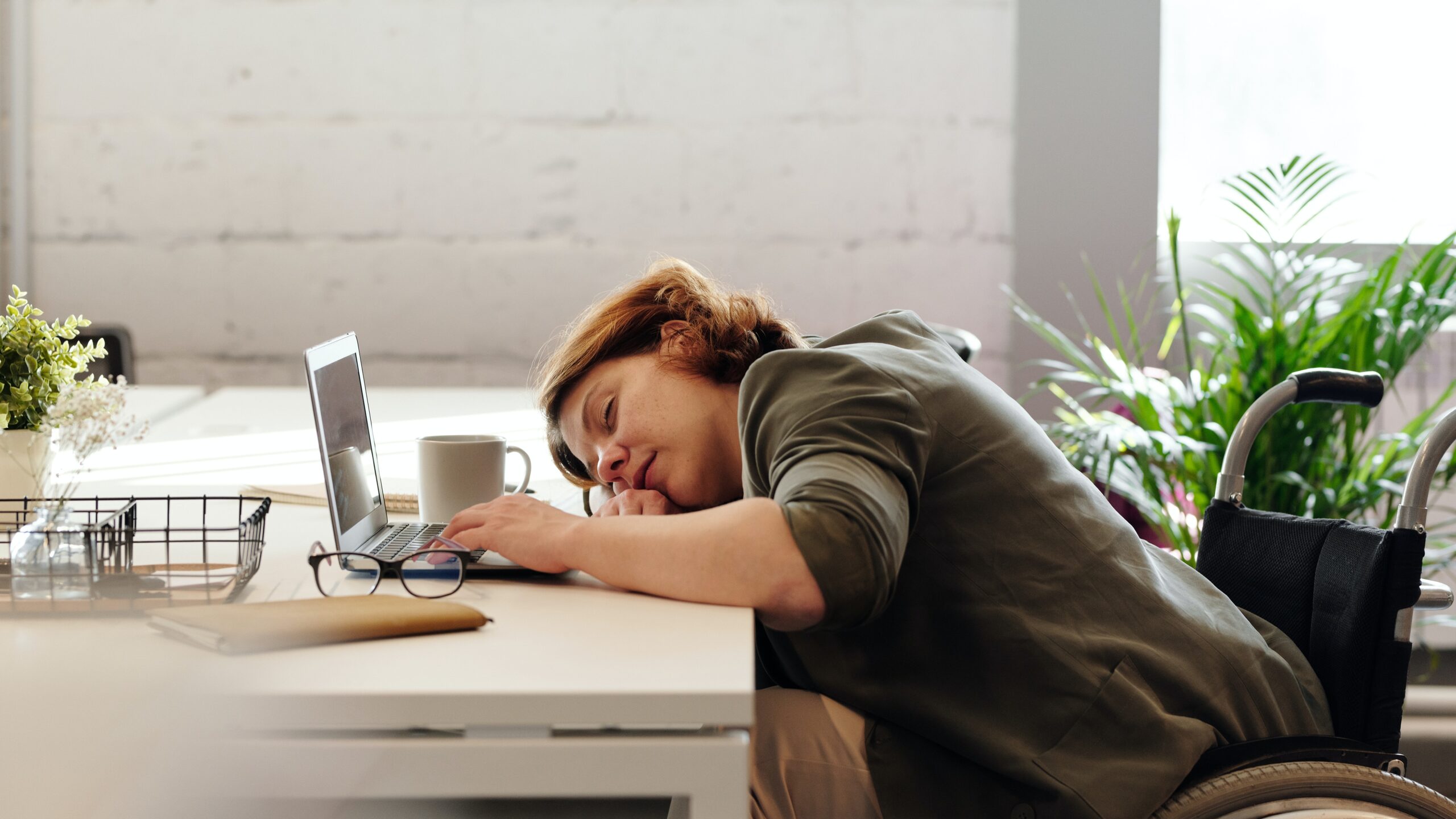
Think you’re too old for naps? Wait, don’t outgrow it just yet. Studies show napping is good for your health. Besides being energizing and brain-boosting, it turns out napping has cardiovascular and immune health benefits too, especially the short and sweet kind.
Naps come in all shapes and sizes. There’s the prophylactic nap, which is sleeping in longer periods to prepare for a night shift. And then there’s the power nap, a short nap typically taken in under 30 minutes.
Why less than 30 minutes? Sofia Khan, MD, assistant program director of the Sleep Medicine Program at UT, explains that beyond 30 minutes, the body enters a deeper stage of sleep. By keeping the nap 30 minutes under, you wake up in the lighter sleep stage, so you feel refreshed and recharged. Snooze any more and you might end up feeling groggy, canceling out the benefit.
If you’ve ever felt like napping is a waste of time, think again. Here are the health benefits of napping you should know about.

Napping Helps the Immune System
By now you know that a good night’s sleep is essential for a healthy immune system. But in a study, researchers found that naps can help too.
In a 2015 study, researchers restricted 11 young men’s sleep to cause sleep deprivation. The next day, the participants either took 30-minute naps in the morning and afternoon or didn’t take a nap.
The napping group, researchers found, had normal biomarker levels related to inflammation and stress, in contrast to those who didn’t nap who had elevated levels. While this could mean taking a power nap may help you decrease your chances of getting sick, more quality research is needed to draw conclusions.
Napping Helps Increase Alertness
Ever taken a nap and woke up feeling refreshed and alert? That’s the significant benefit of naps. It can help you feel alert hours after you wake up, which helps improve cognitive function and reduce fatigue.
Just be sure to wrap up the nap in under 30 minutes. More than that and you will end up feeling groggy, instead of alert. Also, the 30-minute limit ensures the nap doesn’t get in the way of nighttime sleep.
Napping May Help Improve Memory
In a 2022 study, 23 young adults found that taking 30-minute afternoon naps helped them improve their memory. After taking a quick nap, they noticed an improvement in their brain speed for completing procedural memory tasks.
For this, experts concluded that napping may be helpful in improving long-term memory, a nifty benefit for people who use executive functioning skills like memory and self-control – thanks to the brain becoming more alert and less sleepy.

Napping Has Cardiovascular Health Benefits
In a 2019 study for the journal Heart, the researchers found that napping may be good for the heart. In the study, they found that adults who took one to two naps a day had a lower risk of heart problems, including heart diseases and stroke, than non-nappers. Inadequate and poor sleep is a known risk factor for cardiovascular issues, so napping appears to be a healthy heart habit.
The researchers concluded that short snoozes may help relieve stress and compensate for inadequate sleep, therefore protecting heart health. But this doesn’t mean naps can replace quality sleep. Naps should be utilized in addition to the quality uninterrupted seven hours of rest at night.
“If you’re napping because it helps you get through the day, that’s a good thing,” says Dr. Michael Grandner, director of the Sleep and Health Research Program at the University of Arizona.
“But if you’re napping because you can’t stay awake, that’s a sign that there’s some underlying health issue,” Dr. Grandner adds in this interview with Medical News Today, emphasizing that the reasons why a person takes a nap are key to understanding whether a nap is beneficial or not.
How to Power Nap
In conclusion, a power nap is beneficial when you use it on top of a good night’s sleep. If you’re ready to get the most out of a power snooze, follow these tips.
Keep a regular nap schedule. It helps for your body to know what to expect. Try to keep naptime anytime between 1 to 3:00 PM, the so-called prime napping time. Try not to take naps beyond 3 PM, as this might affect your nighttime sleep.
Keep it quick. Set your alarm for 30 minutes so you don’t wake up groggy and wanting to sleep more.
Go dark. Close the curtains or wear an eye mask. Blocking out light will help you sleep faster.
Stay warm. Your body temperature drops when you snooze, so make sure to stay snug with a blanket.
–
It turns out naps are not a lazy indulgence. The next time you feel like napping, don’t feel like you need an excuse or have to explain yourself. Napping is good for you, for your heart, brain, and immune system, and by feeling refreshed and alert after an afternoon nap, you can slay your deadlines and boost your productivity. So go ahead and enjoy those short snoozes.
Tags



0 Comments